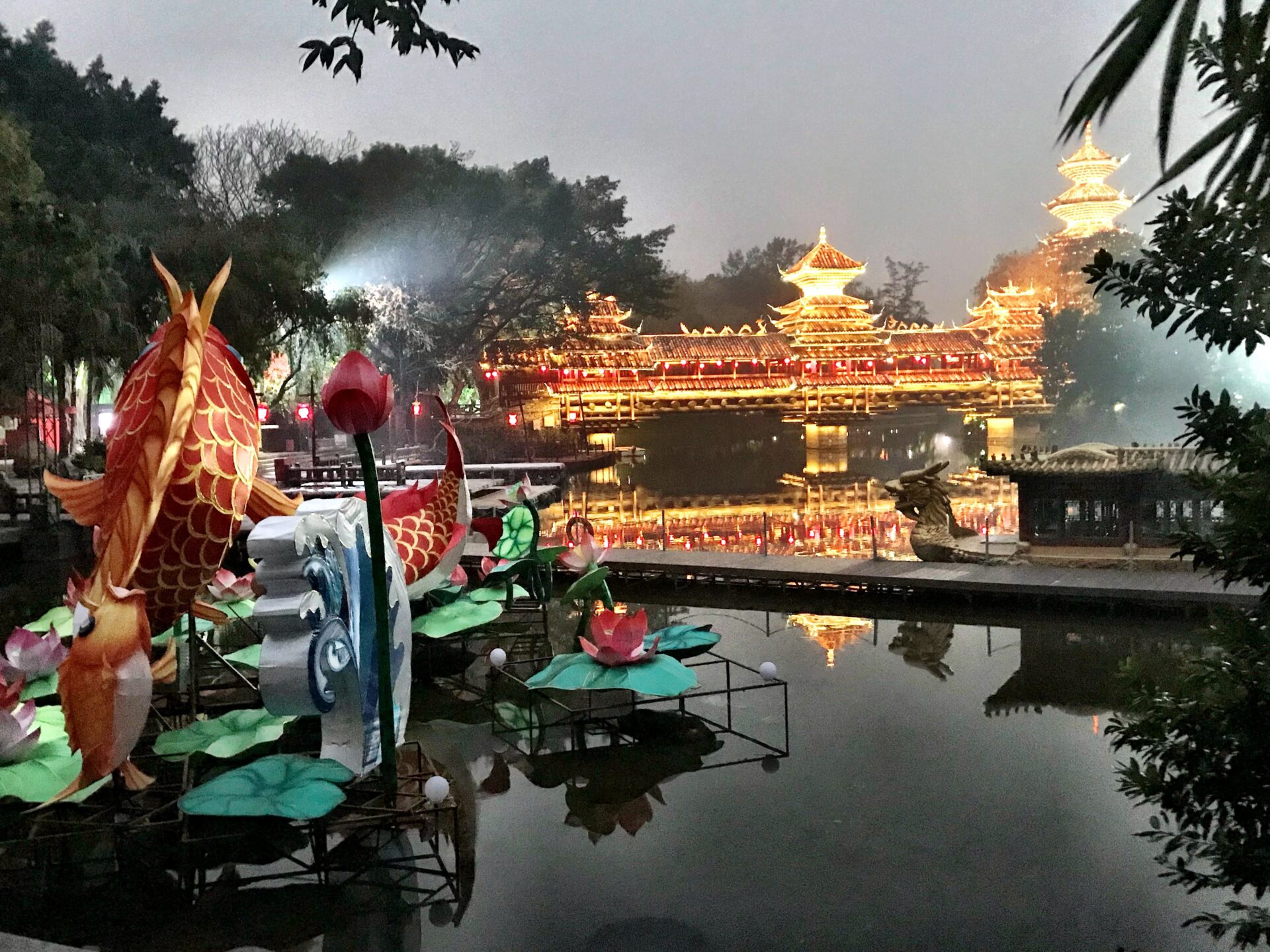I had been traveling in Asia for the last 2 weeks with a friend of mine. We were booked on all the same flights except for getting to and from Kuala Lumpur from Los Angeles. On our return segments we were traveling alone but both had long stopovers in China. My friend had 11 hours in Shanghai and I had 10 in Shenzhen. We both had almost run out of US dollars and planned on using an ATM to get cash for our day in China. Through a series of unfortunate events, my traveling companion got stuck in her hotel in Shanghai the whole day with no food and the inability to go anywhere. The ATMs in the Shanghai airport didn’t work, she spent all her money on an unnecessary taxi, she missed the hotel breakfast buffet by 5 minutes and then didn’t leave the hotel the entire day. She wasn’t really sure where she was and was completely frustrated by her layover in China.I arrived in Shenzhen around the same time and also had an ATM that didn’t work. I changed the same amount of money as my friend ($30), figured out how to use the local metro, found a great place to spend the day and had an amazing adventure. What was the difference? Travel experience and good apps.
What did my friend do wrong? How could the day be salvaged? It’s hard to say without being there, but here’s some tips that might have helped.
Faulty ATMs– Unfortunately, some ATMs just can’t handle a US credit/debit card or in some places, the machines actually run out of cash. You might think your card is to blame, but it could be the ATM. Try a few different locations if you can. You can also call the number on the back of your card. If the bank thinks your card has been compromised, they’ll block it immediately and you’ll need to call them to unblock it. Make sure that you contact them before you leave to let them know your travel plans. That way, when the bank notices a charge from your hotel in Ethiopia, they know it’s you and not a scammer.
Skype– Things will inevitably go wrong and it can be very expensive to make phone calls from your cell phone. Skype allows you to make calls for almost nothing as long as you have WiFi. Most airports offer an internet connection. If not, restaurants and hotels can usually get you connected. This is useful for calling your hotel, airport or setting up a shuttle. My friend couldn’t reach the hotel because she didn’t know to dial a “+” before the country code. Skype calls don’t require that, just the name of the country and the code is automatically filled in. Skype is an absolute necessity when you have travel issues and have to spend an hour on the phone. At $2.99 a minute, a long distance call can be terribly expensive. With Skype, it’s only about 2 cents a minute.
Working with your Hotel– My friend had communication problems with the hotel staff. They didn’t speak English and she wasn’t able to communicate what she really needed so they could help her. Hotels usually know how to get to nearby attractions, what taxis cost, and what areas are safe to walk around. Most hotels have bilingual staff, but if not, there’s bound to be someone that can translate nearby or you can use an app like Google Translate. You might have to be firm if you’re dealing with someone new at the front desk or they’re trying to dismiss you (because that’s way easier for them), but if you hold your ground, someone eventually will come to fix things.
Google Translate– Google has a miraculous app called Translate. Once you’ve downloaded the language pack of your choice, this nifty program can translate anything you write into another language regardless of whether you have internet or not. When I was staying in Beijing earlier on this trip and none of the staff spoke anything other than Chinese, I wrote what I wanted in English and showed them the translation in Chinese. They responded back in English using the same app on their phones. Google translate can also pronounce phrases for you should you be communicating with someone who can’t read. More interestingly, you can hold your camera at a sign or other printed words and the app will translate the text into your language of choice. It can translate an entire menu or anything else printed.
Maps– If you don’t know where you are or where you’re going, you’re at a big disadvantage. Having your map open when you get into a taxi lets you know that you’re not being misled by an unscrupulous driver and helps you check to see how far away everything really is. If you’re stuck at a hotel, you might be missing some fantastic attraction a block away, that you could walk to. I use Maps.me if I don’t have any internet and Google maps if I do.
TripAdvisor– TripAdvisor has become more commercial in recent years, but it’s still a great resource for finding things to do, places to eat and even hotels . Plug in the city you’re in and you’ll get an aggregate listing of everyone’s favorite attractions, restaurants and hotels. The app has a “nearby” feature which tells you places that are nearest your present location. If you’re stuck in a hotel and don’t know a good place to eat, TripAdvisor can fix that in a hurry.
Cash– Cash can solve almost any problem. Carrying US dollars and/or Euros can fix things when nothing else will. I always have an emergency stash just in case I spend all my money or something unexpected occurs.
Information Desks– It may sound obvious, but the help desks at airports can be very useful for figuring out transport, lodging and places of interest. In reality, you should have that sorted out before you arrive, but when things go wrong and you need someone to call your hotel, answer a question about how things work, or tell you which train you need to catch, your friendly little info desk worker could save you a lot of time.
Phone a Friend– You don’t have to be on a game show to use this option. My traveling partner was so upset about the language barrier in China, she forgot that her nephew had previously lived in Chengdu and spoke fluent Mandarin. Using Facebook to ask for help can even work. I’ve had many travel problems solved with my knowledgeable pool of Facebook friends.
Research and Screenshots– I often travel by the seat of my pants and start researching where I’m going to be the night before I get there. Making a few notes on your phone of places you want to see, things you want to buy or eat, and language phrases can really come in handy. Taking screenshots of bus information, hotel details and other useful things is really useful if you don’t have internet at your destination.
Just remember that travel is like a game. There’s always a solution and half the experience is figuring it out. Relax, take a deep breath, smile and positive experiences will happen if you let them.





